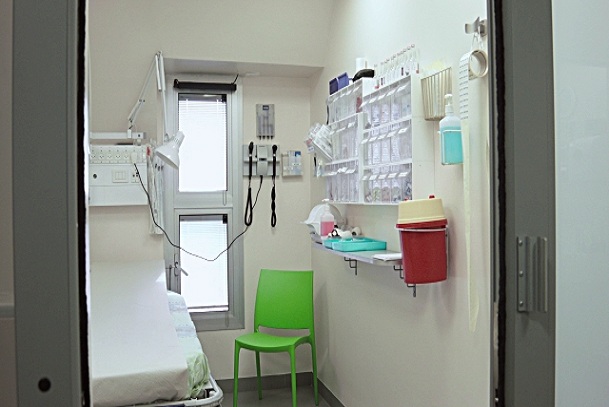 Wash your hands regularly and wear a face mask.
Learn more
Wash your hands regularly and wear a face mask.
Learn more

Researchers at the University of Melbourne discovered three variants of the bug in samples taken from 10 countries, including strains from Europe that cannot be tamed by any drug currently on the market.
“We began with samples from Australia but did a global snapshot and found that it’s in many countries and institutions around the world,” Ben Howden, director of the University’s Microbiological Diagnostic Unit Public Health Laboratory told AFP.
“It seems to have spread.”
The bacteria, which is now known as Staphylococcus epidermis is closely related to the popular but deadly MRSA.
It can be found naturally on the human skin and mostly affects older adults or patients who have at one time had prosthetic implants such as joint replacements.
“It can be deadly, but it’s usually in patients who are already very sick… it can be quite hard to eradicate and the infections can be severe,” Howden said.
The Researchers studied hundreds of S.epidermis specimens from 78 hospitals worldwide.
They discovered that the bug made to made small changes to its DNA and is now resistant to two of the most common antibiotics often used to treat hospital infections.
“These two antibiotics are not related and you wouldn’t expect one mutation to cause both antibiotics to fail,” said Jean Lee, a Ph.D. student at Melbourne’s Doherty Institute, and co-author of the study.
Some of the most effective antibiotics are extremely expensive and even toxic, and the team behind the study said that the practice of using multiple drugs at the same time to prevent resistance may not be working.
They also stated that the bug is spreading rapidly due to the particularly high use of antibiotics in most hospital’s intensive care units, where patients are in a critical condition and strong drugs are prescribed as routine.
The World Health Organization has since warned of antibiotic overuse triggering the development of new strains of killer drug-resistant bugs.
In a similar study conducted in Australia last month, it was discovered that some hospitals are becoming increasingly tolerant to alcohol-based disinfectants used in handwashes and sanitisers.
Howden said his study, which was published in the Journal of Nature Microbiology, showed the need for better understanding of how infections spread and which bacteria hospital choose to target.
“This shows that the use of more and more antibiotics is driving more and more drug-resistant bacteria,” he said.
“With all the bacteria found in a hospital environment, we are driving more resistant strains and there’s no doubt that antibiotic resistance is biggest dangers to hospital care worldwide.”
AFP, WHO